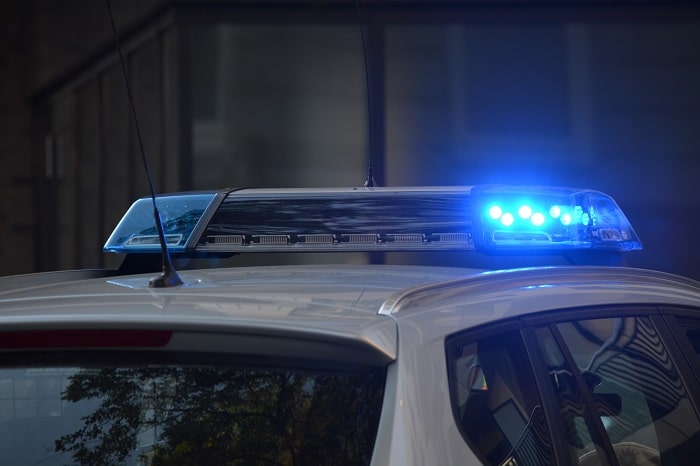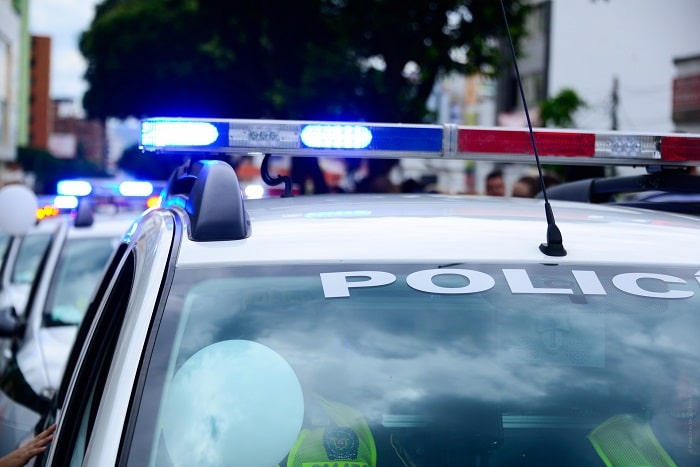Probable cause is a legal requirement that the police need to have to conduct a search or arrest someone. The Fourth Amendment contains this term, and its purpose is to protect you from unlawful searches and arrests. Probable cause often causes confusion, but this guide should help clarify all details regarding this term!
What Is a Probable Cause?
According to the probable cause law definition, it’s a situation where any reasonable person would suspect criminal activity. The crime could be in progress now, or it might have been done in the past. It can even refer to a criminal activity that could happen in the foreseeable future. The legal requirement is that there is enough evidence or circumstances to indicate a potential crime.
Probable cause gives the police power to make an arrest or search a person or property. However, it’s the judge that gives the last word regarding the validity of probable cause. If the judge doesn’t confirm the probable cause, citizens have the right to file a lawsuit for unreasonable searches and seizures. Don’t hesitate to contact our lawyers if you’ve been in a similar situation. Probable cause was added to the Constitution to protect the citizens, so with a judge’s decision, you have good odds of winning the lawsuit.
Probable Cause to Arrests
According to the Fourth Amendment, police officers always need probable cause to make an arrest. The vital thing to underline is that the concept of “probable cause” is abstract. It refers to the entire set of circumstances surrounding the event. The crucial consideration is that the circumstances should be objective and not based on “hunch” or speculation.
There’s no firm definition of probable cause for an arrest. Check out these examples:
- There was a gas station robbery, and a police officer received a robber’s description. A few miles from that location, an officer stops a car for speeding. The driver matches a description, and there’s a pile of cash on the passenger’s seat. That can be probable cause to arrest the driver. But if the driver doesn’t fit the description and there are no additional indicators of a crime, there wouldn’t be probable cause.
- An officer stops a car for speeding. Four persons are inside, but he gets the driver’s consent to search the vehicle. He finds drugs in the passenger compartment. No one admits ownership, and the officer can arrest all four persons based on probable cause.
In some situations, the police won’t conduct an arrest without getting a warrant first. This means a judge will check if there’s probable cause and issue an arrest warrant after confirming the request. But if a police officer arrests without the judge’s approval, the defendant can challenge that action. It helps to have an experienced criminal defense lawyer when challenging this decision. If the arrest was invalid, any evidence collected after that arrest would be inadmissible in court.
Probable Cause to Search
Police don’t need the warrant to conduct a search of your vehicle or property. It’s enough to believe there was probable cause. However, most officers decide to wait for a warrant. That way, they left the judge to decide which secures the evidence would be admissible in trial.
Probable cause to search indicates that the police will find evidence at the location they want to search. The police need to convince the judge that they will happen to receive a warrant. Police don’t need to have court-level evidence but must present reliable information.
Here’s what the police usually needs to get a search warrant from a judge:
- Police informant with a history of providing reliable info
- An informant ready to incriminate themselves to bring other people to justice
- A police officer who was at the scene or has reliable information
- An informant who provided info that the police partially confirmed as accurate
- A victim that reported the crime
- Witness that was there during the criminal activity
Police officers can search your vehicle or property if they get your consent. However, you have the right to refuse the search. If the officer continues the search, you can challenge their action in court. The police can also search someone’s house if an emergency affects someone’s life.
Can You Be Detained without a Probable Cause?
Yes, it’s possible for an officer to briefly detain you even if they don’t have probable cause. All they need is reasonable suspicion. The most common example of these detentions includes traffic stops. If you get detained, it helps to be polite. You should identify yourself to the police since that could shorten the detention time.
The detention duration is only described as “briefly.” It can take less than a minute and extend to over an hour. The law indicates that the detention shouldn’t last longer than necessary to establish whether the officer’s suspicions of a crime were legit.
If the police officer detains you, you can’t leave the spot. Depending on the situation assessment, the officer might put you in handcuffs or frisk you (search for weapons).
What Happens When There’s Failure to Demonstrate?
The officer won’t always get an arrest or search warrant but act on believing they had probable cause. If that happens, they will need to demonstrate probable cause in court. The judge will hold a probable cause hearing to determine if the actions were legit. The first option is to confirm, which means the police officer didn’t violate your rights when arresting you.
But if the police fail to demonstrate probable cause, the case gets rejected. So your arrest becomes unlawful, and any evidence gathered during the action isn’t admissible in court.
What’s the Difference Between Probable Cause and Reasonable Suspicion?
Reasonable suspicion doesn’t require actual evidence of a crime. It comes before probable cause and gives the police the right to detain you. An officer establishes reasonable suspicion based on their experience and training, as well as circumstances pointing to criminal activity. For example, if they see a car changing lanes quickly and not being able to keep a straight line, it’s reasonable suspicion for DUI.
Officers act on reasonable suspicion to determine if there’s probable cause. That involves evidence or “objective” circumstances pointing to criminal activity. For example, a drug bag on the passenger seat is probable cause for search and seizure during a traffic stop.
What Are the Legal Repercussions?
The probable cause should be enough to get different types of warrants. That includes those for searching and seizing property. If a police officer is present during criminal activity, they have the right to make an arrest.
Even if you believe the arrest is unlawful, don’t resist it. You can challenge the probable cause in court later. There’s a legal way to challenge the action if the judge didn’t approve it. However, it helps your case if you collaborated during the process. If the judge determines there was no probable cause, the police officer can be held accountable for illegal detention, false arrest, and even evidence planting. It’s vital to have an experienced defense attorney on your side during the process!
Get Help from a Los Angeles Criminal Defense Lawyer
If you were arrested and/or searched by police for suspicion of a crime, you need an experienced criminal defense to protect your rights. An attorney will know how to assess the circumstances of your interaction with the police to determine if the police acted in violation of the law. Attorneys at the Manshoory Law Group, APC represent clients throughout Los Angeles and will work to ensure you receive justice. Lawyers are available 24/7. Contact us for a free consultation.


